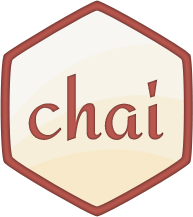Testing Style
- chai:
Chai supports multiple assertion styles, including BDD (Behavior-Driven Development) and TDD (Test-Driven Development), allowing developers to choose the style that best fits their testing philosophy.
- jest:
Jest uses a BDD-style syntax but is highly opinionated, providing a streamlined experience with built-in matchers and a focus on simplicity and ease of use.
- mocha:
Mocha is flexible and does not enforce a specific testing style, allowing developers to choose their preferred assertion library and structure their tests as they see fit.
- sinon:
Sinon is not a testing framework but a library for creating spies, mocks, and stubs, which can be integrated with any testing style or framework.
- jasmine:
Jasmine follows a BDD approach, providing a clean and descriptive syntax for writing tests, making it easy to understand the intent of the tests at a glance.
Mocking and Spying
- chai:
Chai itself does not provide mocking or spying capabilities but can be used in conjunction with Sinon for these features, allowing for comprehensive test setups.
- jest:
Jest includes a powerful mocking library that allows for automatic mocking of modules and functions, making it easy to isolate tests and control dependencies.
- mocha:
Mocha does not include built-in mocking or spying capabilities, but it can be paired with Sinon or other libraries to achieve this functionality.
- sinon:
Sinon excels in mocking, spying, and stubbing, providing a rich API for controlling function behavior and tracking calls, making it an excellent choice for complex testing scenarios.
- jasmine:
Jasmine has built-in support for spies, enabling developers to track function calls and control their behavior easily, making it straightforward to test interactions between components.
Setup and Configuration
- chai:
Chai is lightweight and can be easily integrated with any testing framework, requiring minimal setup to get started with assertions.
- jest:
Jest comes with a zero-config setup, automatically finding and running tests, which speeds up the initial setup process for developers, especially in React projects.
- mocha:
Mocha requires some configuration, especially when integrating with other libraries for assertions and mocking, but offers flexibility in how tests are organized and executed.
- sinon:
Sinon is a library that complements other testing frameworks, requiring integration but providing powerful features for mocking and spying once set up.
- jasmine:
Jasmine is easy to set up and requires no external dependencies, making it ideal for projects that need quick and straightforward testing solutions.
Ecosystem and Community
- chai:
Chai has a strong community and is widely used in conjunction with Mocha, making it a popular choice for assertion in JavaScript testing.
- jest:
Jest has rapidly gained popularity, especially in the React community, and is backed by Facebook, ensuring robust support and frequent updates.
- mocha:
Mocha has a large ecosystem with many plugins and integrations, making it versatile for various testing needs and compatible with numerous assertion libraries.
- sinon:
Sinon is widely used alongside other testing libraries, particularly Mocha and Chai, and has a strong community that contributes to its development.
- jasmine:
Jasmine has a dedicated community and is often used in Angular projects, providing a solid foundation for behavior-driven testing.
Performance
- chai:
Chai's performance is generally good, but it relies on the underlying testing framework for execution speed, making it efficient when used with Mocha or Jest.
- jest:
Jest is optimized for performance, with features like parallel test execution and intelligent test running, which can significantly speed up the testing process.
- mocha:
Mocha's performance can vary based on configuration and the number of tests, but it is generally efficient for most use cases, especially when paired with a fast assertion library.
- sinon:
Sinon has minimal impact on performance when used correctly, but excessive use of spies and mocks can lead to slower tests if not managed properly.
- jasmine:
Jasmine is designed to be fast and efficient, with minimal overhead, making it suitable for large test suites without significant performance hits.




